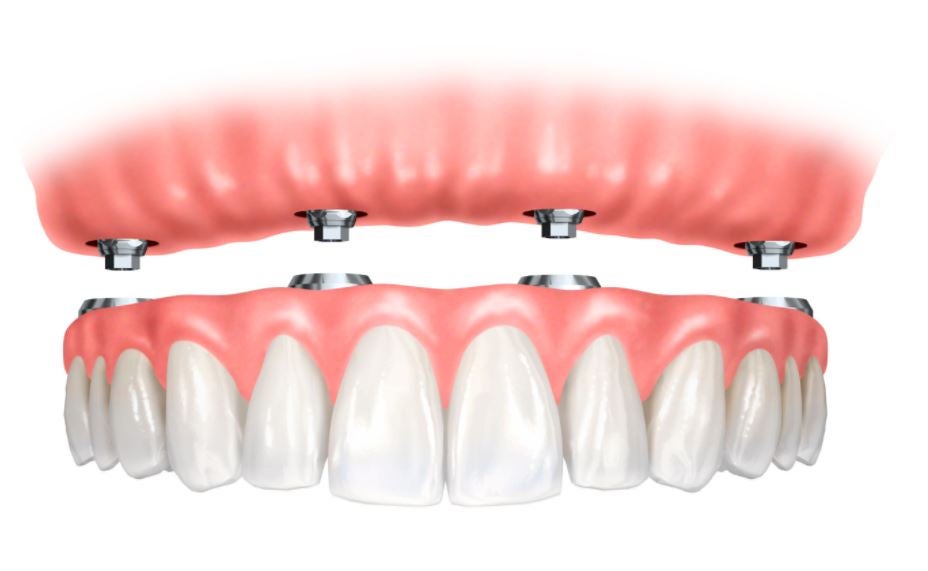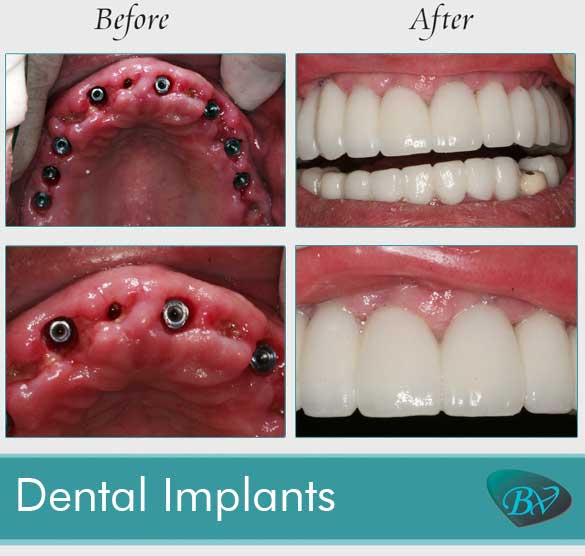Some Ideas on Dental Sense You Need To Know
Table of ContentsDental Sense Fundamentals ExplainedA Biased View of Dental SenseExcitement About Dental SenseThe Only Guide to Dental Sense
are medical gadgets operatively implanted into the jaw to recover a person's ability to chew or their look. They provide assistance for artificial (fake) teeth, such as crowns, bridges, or dentures. When a tooth is lost due to injury or illness, a person can experience complications such as fast bone loss, malfunctioning speech, or adjustments to chewing patterns that result in discomfort.Oral implant systems consist of a dental implant body and oral implant abutment and might likewise consist of an abutment addiction screw. Professional teeth whitening. The dental implant body is operatively put in the jawbone instead of the tooth's root. The dental implant joint is typically affixed to the implant body by the joint fixation screw and expands via gums right into the mouth to sustain the affixed fabricated teeth
(http://tupalo.com/en/users/8103990)Structure of The Oral Implant System selecting dental implants, speak with your oral service provider regarding the possible benefits and risks, and whether you are a prospect for the treatment. Points to consider: Your overall health is an essential variable in figuring out whether you are a great candidate for oral implants, just how long it will certainly require to recover, and exactly how long the implant may remain in location.
Smoking cigarettes may affect the recovery process and reduce the long-lasting success of the implant. The recovery process for the implant body might take several months or longer, during which time you commonly have a temporary joint in place of the tooth. the dental implant treatment: Very carefully adhere to the dental hygiene guidelines provided to you by your oral provider.
Dental Sense Can Be Fun For Anyone
Implant failure can lead to the requirement for an additional surgery to repair or replace the implant system. Recovers the capacity to chew Recovers aesthetic appearance Aids keep the jawbone from shrinking because of bone loss Maintains the health of the bordering bone and gums Helps maintain adjacent (neighboring) teeth steady Improves lifestyle Damage to surrounding all-natural teeth during dental implant placement Injury to the surrounding cells throughout surgical procedure, such as sinus opening Injury throughout surgery (for instance, crack of surrounding jawbone) Inadequate feature, such as really feeling like the teeth do not attack with each other typically A feeling that the tooth is loose or turning in place arising from a joint screw loosening Implant body failure (looseness of the dental implant body) due to systemic infection, which may be more probable in people with unrestrained diabetes due to local infection in bone and gums sustaining the implant body as a result of postponed recovery, which might be most likely in people that smoke Difficulty cleaning up the gum tissues around the dental implant, resulting in inadequate dental hygiene Untreated periodontal disease Post-surgical tingling as a result of nerve impingement or damages Always inform healthcare suppliers and imaging professionals that you have oral implants before any kind of magnetic resonance imaging (MRI) or x-ray procedures.
FDA is not knowledgeable about any type of adverse events reported for MRI or x-ray procedures with oral implants. Oral implants systems are typically made of materials that comply with global agreement criteria of the International Company for Standardization (ISO) or ASTM International. These pop over to this web-site criteria have information of what makes a secure product.

A dental implant is a structure that replaces a missing tooth. With screw-like tools, the doctor inserts an implant into the jawbone, and it serves as an anchor for a fabricated tooth, called a crown. A gadget called an abutment links the synthetic tooth to the dental implant. The crown is tailor-made to fit the person's mouth and match the color of their teeth.
Dental Sense for Beginners
Some individuals are not qualified for dental implant surgical treatment. It is for dental doctors to operate on individuals with: severe illnessuncontrollable metabolic diseasebone or soft cells illness or infectionIf these concerns are dealt with, a person can have the surgical treatment. In, oral surgeons avoid operating on individuals with: If individuals with any of the above go through dental implant surgical treatment, there is a higher danger of the implant failing.

Dental implant surgical procedure is a tailored procedure. It's not the very same for every person. But the following gives a basic introduction of what you can expect your dental expert, dental cosmetic surgeon, periodontist or prosthodontist to do: Put the dental implant surgically. Offer you time to heal. Connect the blog post and final crown, bridge or denture.
Next off, your surgeon will very carefully put the dental implant right into your jaw. If your implant is near the front of your mouth, your dental professional will certainly make a momentary tooth for you to use till you recover.
Not known Incorrect Statements About Dental Sense
Your company can inform you what to expect in your situation. During the healing stage, your jawbone should fuse to the oral implant. This procedure, called osseointegration, is critical for security and long-lasting success. This process can take anywhere from 3 to 9 months. Sometimes, it may take much longer.
Once your dental implant heals, your dental expert can affix the abutment (tiny adapter message) and your last restoration (crown, bridge or denture). This normally takes concerning one hour to finish and might call for a 2nd small surgery. You shouldn't really feel any discomfort throughout your dental implant procedure due to the fact that your service provider will certainly make use of medicine to numb your gums.